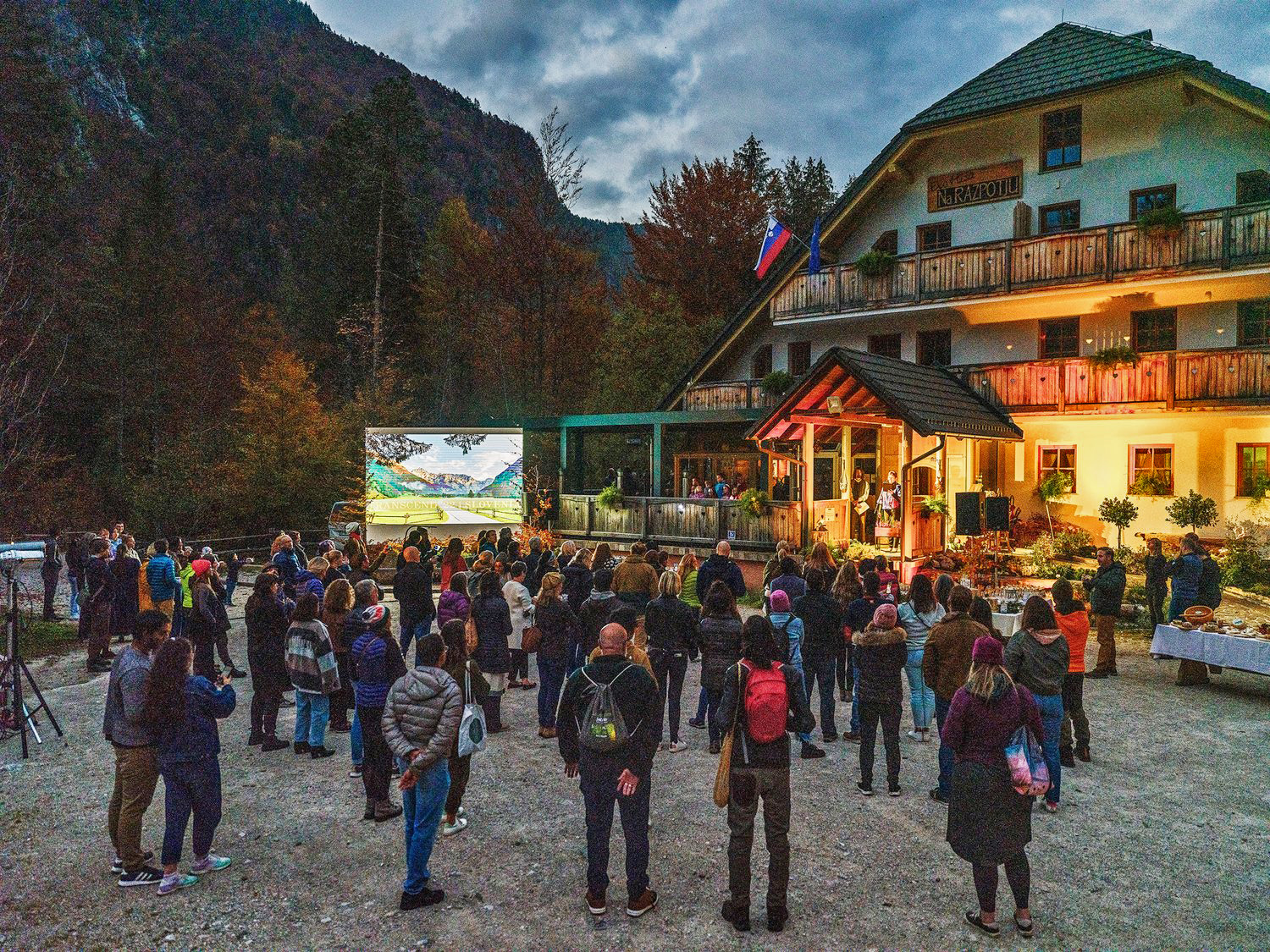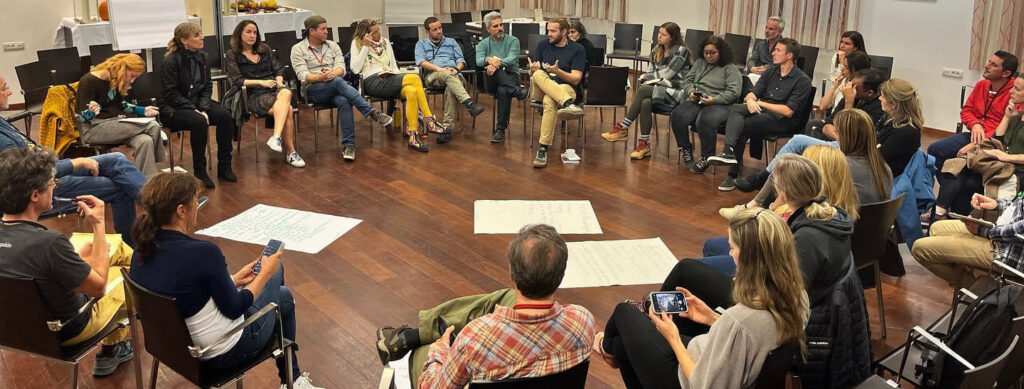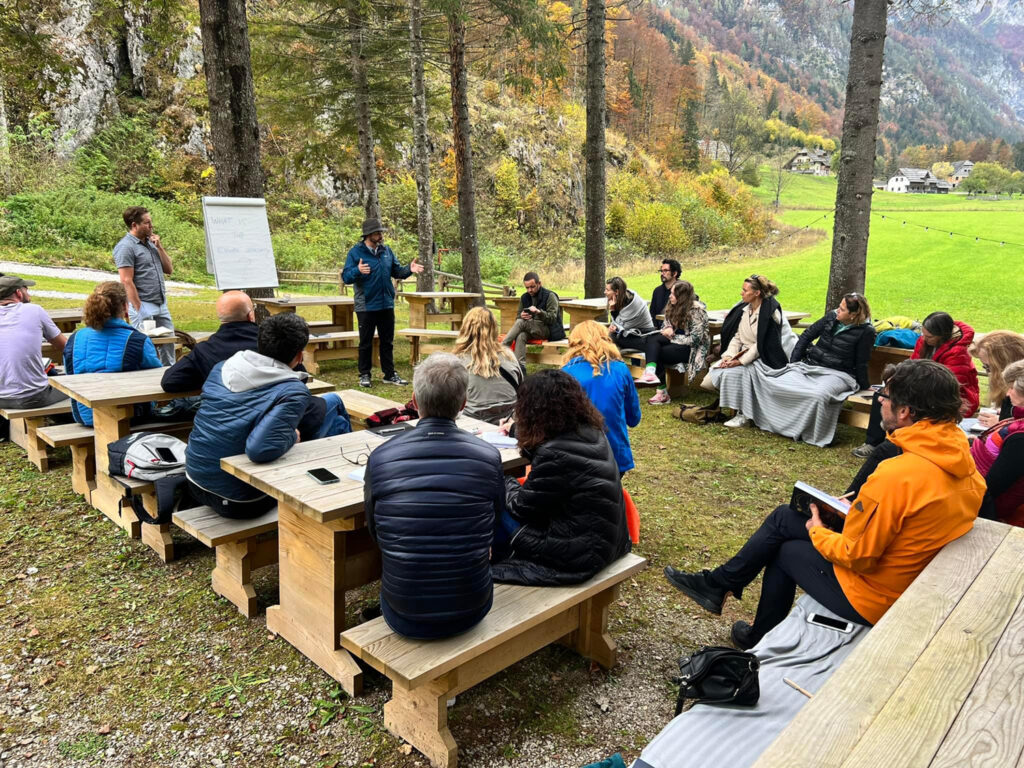Would you like to transition from herding tourists to stewarding travelers? If so, Ivana Damnjanović, Ph.D. has some ideas. Underlying them lies the reality that tourism focused on authentic experience is beneficial for destinations. Here she addresses travel entrepreneurs.

Tips for Travel Professionals
Transformational tourism, as I define it, is an approach to both the design and experience of travel. We need an invitation to actively enhance ourselves, the natural world, and the communities we visit and belong to.
Despite guidelines and significant efforts invested to make sustainable travel a global priority, the gap between intention and outcomes remains striking. Knowing what needs to change is one thing. Implementing change is another.
In today’s volatile and complex world, resistance to transformation is human nature—businesses and organizations are, after all, just people. Sustainable practice demands not only operational adjustments but a fundamental shift in mindset. It can feel overwhelming, especially in isolation.
What’s missing, perhaps, isn’t another Power-Point presentation of sustainable principles but a human-centered approach—one which focuses on guiding businesses through the messy, uncomfortable, iterative process of change. By practicing the adage of prioritizing the journey over the destination, we can support travel professionals as they navigate uncertainty, embrace reinvention, and embed sustainability at the heart of their operations.
Sustainability Meets Transformation
After nearly two decades in academia, last year my passion for sustainable travel and experience design found me mentoring and collaborating with nearly 80 tourism businesses around the globe. I led transformational travel design courses which ushered each entity through a process to mitigate the adverse effects of tourism. In navigating the shift from taming visitors to nurturing stewardship, these businesses showed that real change begins with how we perceive our role in fostering a more conscious and caring travel industry.
Sustainable and transformational approaches to tourism share a symbiotic relationship: If you want to design an experience for a more conscious, responsible future, it will require the same inward transformation of business and of traveler.
The growth-oriented nature of thoughtfully designed experiences, in both education and travel, uncovers deeper, often overlooked issues. Collaborative learning environments foster active sharing and co-creation, as they reveal subtle concerns and barriers to the adoption of sustainable practices.
Aspiration vs. Uncertainty
Many tourism organizations face the dual challenge of being competitive while also practicing sustainability. And they need to do so as they create meaningful, responsible travel experiences that not only meet customer expectations but also reflect their values and commitment to the destinations they serve.
- If you are concerned that you are small and powerless, think again. Small organizations have both the unparalleled uniqueness and capacity to respond to subtle market needs. Travelers want to journey with a sense of purpose. And they desire immersive, local, out-of-the ordinary, community-centered experiences (com, 2024; Black Tomato, 2024; Design Hotels, 2024; Forbes, 2024). Booking.com says that in 2025, travelers will seek authentic, sustainable, nature-based adventure experiences, and Design Hotels notes that they will want to increase their community capital by nurturing high-quality relationships. One example is Rebbecca Adventure Travel who cater to small groups and different travel styles. Rebbecca Adventure Travel demonstrates the concept of guiding the traveler through a journey in which they can explore and educate themselves. While many entrepreneurs lack the resources—time, budget, or skill—to dive into extensive research, staying informed is essential. Think of it not as an expense but as an investment.
- Stay inspired as you identify market gaps. Keep up with trends and align them with your unique strengths to uncover opportunities. An example of this is Walking Mentorship, a business which uses nature, walking and a mentorship program to transform individual travelers.

The Backbone
Destination stewardship requires connection, understanding, compassion, and care before entities can act responsibly. Course participants have highlighted the following takeaways.
Professional community: Both travelers and industry members value community. A dynamic network of like-minded professionals serves as a knowledge hub and a source of support against uncertainty and isolation.
- Through co-creative collaboration in a symbiotic system, we move beyond competitiveness to foster responsible travel behavior.
- A shared sense of belonging and “speaking the same language” inspires experience design, guides travelers, and encourages continual evolution through collaborative discovery.
- Never underestimate the power of community creativity to drive innovative solutions.
Many organizations cultivate vibrant professional communities. For instance, the Global Sustainable Tourism Council and Inner Developmental Goals have dedicated academic or professional circles. And the Transformational Travel Council brings together travel journalists and professionals. One course group even self-organizes regular micro-events billed as Transformational Campfire to share ideas, ask questions, spark creativity, collaborate, and simply offer mutual support.
Know yourself: Our business values, purpose, uniqueness, and personality shape everything we do. Course cohorts consistently report greater clarity, determination, and confidence as they pursue their goals.
Masterful educators: Course mentors who guide with intention and care can help you adopt sustainable practices or tackle specific environmental or social challenges while respecting your vulnerabilities and fears. Seek them out.
A Client’s Perspective
While trends guide us, every traveler’s reasons for embarking on a journey are unique. To meet travelers where they are, and to fulfill the purpose of thoughtful stewardship, two fundamentals stand out:
- Seamlessly embed sustainability into experience designs to support both travelers’ and businesses’ responsible travel aspirations.
- Recognize that responsible travel requires a mindset shift. Design experiences that resonate with each traveler—explore, listen, and learn their story, then coauthor a new narrative. Engage them with games, volunteering, or novel—even uncomfortable encounters. Help them grow long after the trip ends.
Allow flexibility and cocreate tailored, meaningful experiences with travelers. This approach creates ripple effects that extend far beyond the destination and the time spent traveling.

A Practical Viewpoint
Transformative travel experiences encompass the pre-, during-, and post-travel phases, offering endless opportunities to create meaningful and impactful journeys.
Pre-Travel Phase:
This phase helps travel professionals understand the client’s aspirations and challenges, define the journey’s personal goal, and prepare travelers for the experience. Goals often revolve around major life events or personal growth, such as coping with loss, recovering from burnout, or building confidence. Tools like questionnaires, interviews, and activities such as quizzes or writing tasks enable travelers to co-create their journey by selecting purposeful activities and rhythms.
During Travel:
Travelers immerse themselves in authentic, local experiences that align with their goals and the business’s values, such as sustainability. These might include staying in family-run accommodations, dining locally, farming with residents, learning a skill, or crafting souvenirs.
Post-Travel Phase:
This phase focuses on helping travelers integrate their transformations into daily life. Businesses foster trust and long-term relationships through guided reflections, story-sharing, online meetups, or peer-accountability groups for sustainable behaviors.
Travel holds transformative power, what we do matters, how we do it is vital, and why we do it is essential. Explore purpose-driven initiatives by visiting the following websites: Costa Rica collective or expedition experiences, or those inKenya, Japan, India, destination Wyoming, long intentional or connection-centered journeys, B Corp certified organizer, a destination management tool, an accommodation, mentoring through walking in nature, solo sabbatical, experiential travel community.
Dr. Damnjanović has mentored close to 80 travel professionals worldwide, and has served as the head of education and research at the Transformational Travel Council. Before that she was an associate professor and vice-dean for international cooperation at Serbia’s Singidunum University, Faculty of Health and Business Studies.

